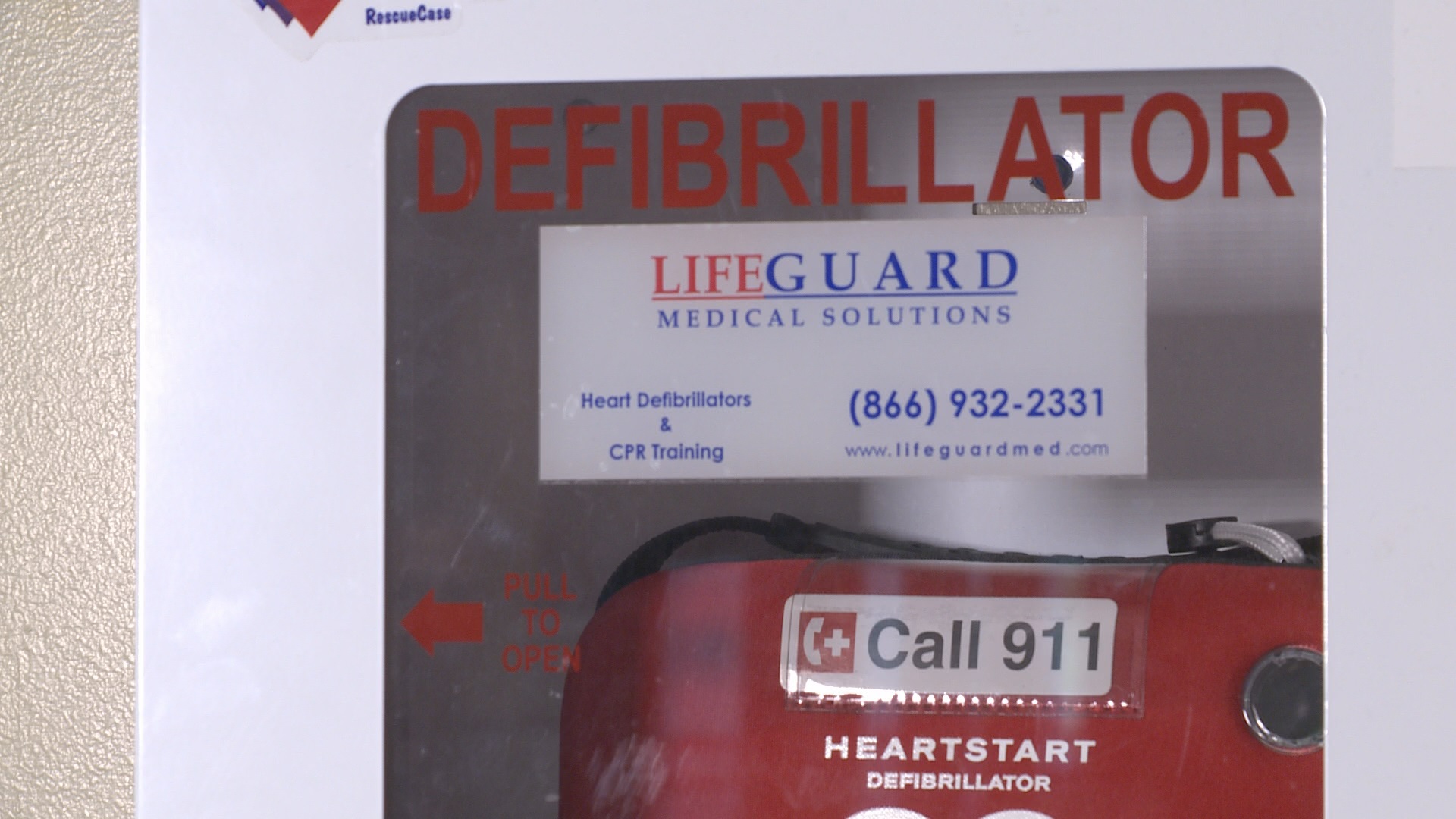(WBIR) - There's been a major push across the country and here in East Tennessee in the last decade to put potentially lifesaving devices in every school.
When applied to a person's chest, defibrillators, or AEDs, sense when a heart has stopped and shock it when needed. When used by a trained person, an AED increases your chances of surviving a cardiac event by 70 percent.
One East Tennessee school system found out the hard way that AED batteries have a shelf life.
Helen's story
Mark Greene now has his mom's job, one she took pride in for 15 years. Helen Greene cleaned Hancock Elementary School for 15 years.
On April 4, Mark's mom, Helen, was still working as the school's janitor. Mark went to the school with his mom on that Saturday to turn off a false fire alarm.
His 70-year-old mother told him she needed to sit down. He said it wasn't long before she fell out of her seat. She didn't have a pulse.
"I was trained with doing CPR. But when it happens to someone close to you, it just left me. You forget how to do anything like that," said Greene.
Mark found help in the school gym where a basketball game was going on. A nurse was attending the game and started to perform CPR on Helen.
"I actually told them there was an AED in the school. So someone ran down to get it. They proceeded to try to use it but the machine wasn't functioning or anything," Mark said.
Mark is thankful an ambulance was not far behind.
Emergency crews used the defibrillator in the ambulance to shock Helen's heart five times.
"The doctor said if it had been any longer she wouldn't be here," Mark said.
"I appreciate them. They'll never know how much," Helen said.
Helen is still recovering and hasn't been able to go back to work.
AEDs in schools
Once the family had counted their blessings, then came the obvious question: Why did the school's AED not work?
Hancock County's director of schools, Tony Seal, declined a formal interview. But via phone he said the battery on the Hancock Elementary AED had died. Seal said since then the district has replaced the batteries and put a plan in place to check them regularly at every Hancock County school.
"It's a pretty tragic event to need and have an AED and you open it up to find the batteries are expired or the pads are dried up," said Karen Smith, the Project ADAM coordinator at East Tennessee Children's Hospital.
Smith's job is dedicated to making sure that doesn't happen in schools. Through Project ADAM she helps schools get AEDs and trains teams how to use them. The nationwide program is named after high school athlete Adam Lemel, 17, who died because there was not an AED in his school.
"There's evidence that 20-25 percent of our population can be found inside a school on most days. This accounts for people who use the school after hours: parents, grandparents, volunteers," said Smith.
Since 2011, grants and donations have helped place 170 AEDs in East Tennessee schools. See the full list on Project ADAM's website.
A WBIR 10News survey of 33 school systems shows Union County Schools is the only district without any AEDs in their schools. Every other district said it has at least one defibrillator in each school and that there are systems in place requiring nurses and staff to check the devices each month.
Hancock County Schools, where Helen worked, said they now have that same plan.
Smith said the batteries and pads have shelf lives of two to five years and it's recommended that you test them monthly.
Tennessee law does not require, only recommends, that schools have AEDs. It does not hold schools accountable for injury or negligence.
Defibrillators not required in the workplace
While there are recommendations for AEDs in schools, there is nothing in state code that requires them in the workplace.
Code says if a business does have one of these devices, managers must include establishing a set of rules detailing where the AED will be placed, who can operate it, and maintenance and testing the device. It does not say how often they need to be tested.
"Businesses do not have to have them as of yet. However, any place that has workforce should have an AED because you never want to lose somebody because they didn't have that tool," said Michelle Hankes with the American Red Cross.
There is no national law requiring AED in workplaces. However, they can be found in big centers, like the City County Building.
In the past, the only way to give immediate help for someone with a heart attack or cardiac arrest is CPR. Still, Hankes said it is not as reliable as an AED, making the tool a true lifesaver.
"It takes a lot of upper body strength and energy," said Hankes . "Whereas the AED, anyone, even someone who is disabled and missing an arm, can still do and save a life."


